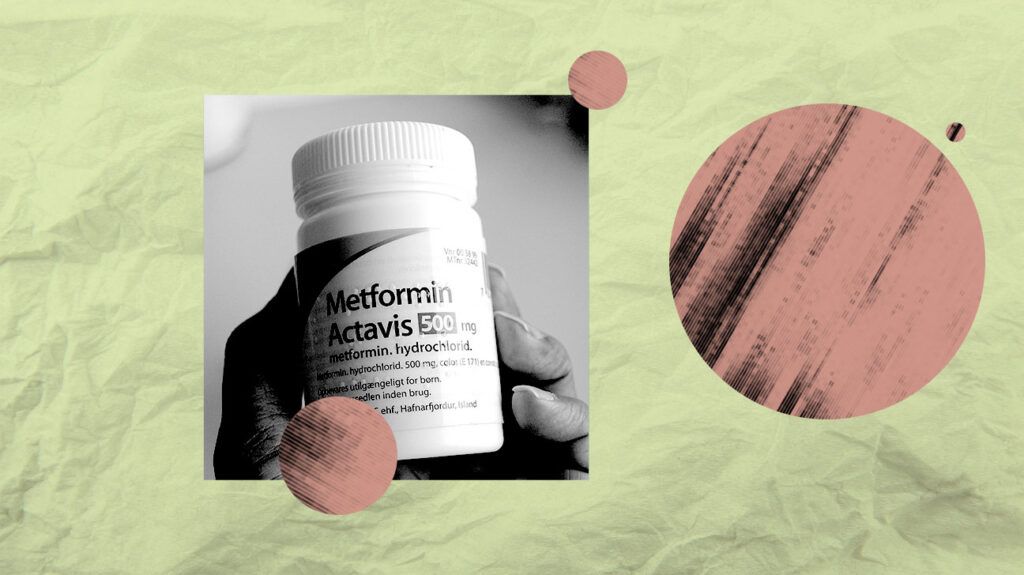Metformin is an oral prescription drug widely used to control blood sugar in type 2 diabetes. Recently, studies have found several other potential health benefits of the drug, including fighting cancer and obesity, and improving the health of people with liver, kidney, and cardiovascular diseases. Now, some experts suggest that it may increase healthy life years, and even extend lifespan. This Special Feature looks at how metformin might boost the health span, and asks whether it truly has potential as an anti-aging treatment.
Type 2 diabetes affects
A person with type 2 diabetes will have raised blood glucose, which leads to symptoms including frequent urination, extreme thirst, weight loss, fatigue, blurred vision, infection and sores. Without treatment, raised blood glucose can lead to
People take metformin as an oral tablet. There are two types — immediate release, which are generally taken twice a day, and extended release, which people take once daily. People usually start on a dose of 500 milligrams (mg) a day, up to a maximum of more than 2,000 mg a day if needed to keep blood sugar under control.
During treatment with metformin, a person’s clinician will regularly check their blood glucose levels,
Metformin belongs to a class of drugs called
Although primarily a treatment for type 2 diabetes, metformin is also used to manage polycystic ovary syndrome (PCOS), a hormonal disorder that affects up to 20% of women. In PCOS, metformin
It is these anti-aging effects that have prompted increasing interest and led to a trial being set up by the American Federation for Aging Research.
The Targeting Aging with Metformin (TAME) Trial will enroll more than 3,000 individuals aged between 65 and 79 in a series of nationwide, six-year clinical trials at 14 leading research institutions across the United States.
The trials will test whether metformin delays development or progression of age-related chronic diseases—such as heart disease, cancer, and dementia.
With an aging population worldwide, age-related diseases are becoming one of the greatest challenges, and costs, facing health care.
Although lifespans have been increasing,
Although some factors, such as genetics, are beyond our control,
- stay active — regular exercise not only helps you live longer, but helps delay the chronic conditions of old age
- follow a healthy diet, including lots of fresh fruits and vegetables, whole grains, healthy fats, and lean proteins, such as the Mediterranean diet
- get a good night’s sleep, aiming for 7–9 hours a night
- give up smoking if you are a smoker
- avoid or limit alcohol consumption
- get regular health screenings.
But should taking metformin be added to that list?
Some studies in animals have suggested that metformin can increase lifespan.
In
However, in
In people,
David Merrill, MD, PhD, geriatric psychiatrist and director of the Pacific Neuroscience Institute’s Pacific Brain Health Center at Providence Saint John’s Health Center in Santa Monica, CA, explained to Medical News Today:
“Metformin certainly lessens complications of type 2 diabetes, especially when combined with healthy carb-controlled diet and regular physical exercise. This will help reach the goal of aging without chronic disease or disability.”
“Metformin improves insulin sensitivity, promotes cellular repair, is anti-inflammatory, and antioxidant. All these properties contribute to its anti-aging effects,” Merrill told us.
Sebnem Unluisler, chief longevity officer and genetic Engineer at the London Regenerative Institute, in the United Kingdom, explained that “[m]etformin’s potential mechanisms for anti-aging effects encompass its ability to influence critical processes associated with aging.”
“These include regulating nutrient sensing, maintaining
And oxidative stress can be
So, by controlling blood sugar, metformin helps prevent production of excess free radicals, thereby
“By targeting these pathways, metformin has the potential to delay the onset or progression of age-related chronic diseases, including heart disease, cancer, and dementia.These mechanisms may contribute to its observed benefits beyond glycemic control,” Unluisler explained.
Tunc Tiryaki, board-certified plastic surgeon, founder of the Tiryaki Clinic in Istanbul and a consultant plastic surgeon at Cadogan Clinic in London, suggested that metformin might have other beneficial effects, too.
“Metformin, a widely used medication for managing type 2 diabetes, has shown promising potential beyond glycemic control, possibly extending to facial bone and skin aging. Metformin’s mechanisms, such as stimulating bone formation and reducing resorption, offers the potential for maintaining facial bone density,” he told us.
“As facial bones support the skin structure, this could translate to improved facial contours and reduced signs of aging,” he added.
“However,“ Tiryaki cautioned, “further studies are required to fully elucidate metformin’s specific effects on facial bone health and its potential as an anti-aging intervention.”
The TAME trial wants to investigate whether metformin might work by targeting overall aging, instead of treating age-related diseases individually. If the trial shows that it does have anti-aging effects, the organizers hope to gain FDA approval for the drug as an ‘indication’ for aging.
This would mean metformin could be prescribed to treat aging in people without type 2 diabetes, rather than just for type 2 diabetes and other indicated conditions, such as PCOS.
However, Merrill cautioned that its use could have unwanted effects. “[N]o medications are without potential side effects,“ he said.
Some of the side effects linked to metformin use include “stomach upset, nausea, or diarrhea,” noted Merrill.
Unluisler, nevertheless, welcomed the trial, telling us that “[i]f TAME and similar trials demonstrate positive outcomes, metformin could potentially become a groundbreaking intervention for promoting healthy aging and reducing the burden of age-related diseases.”
And Merrill added that, when used under the supervision of a prescribing doctor: “Metformin may be a lower cost way to help older aged individuals remain healthy for longer. It’s an important quality of life question worth studying.”
Credit: Source link




